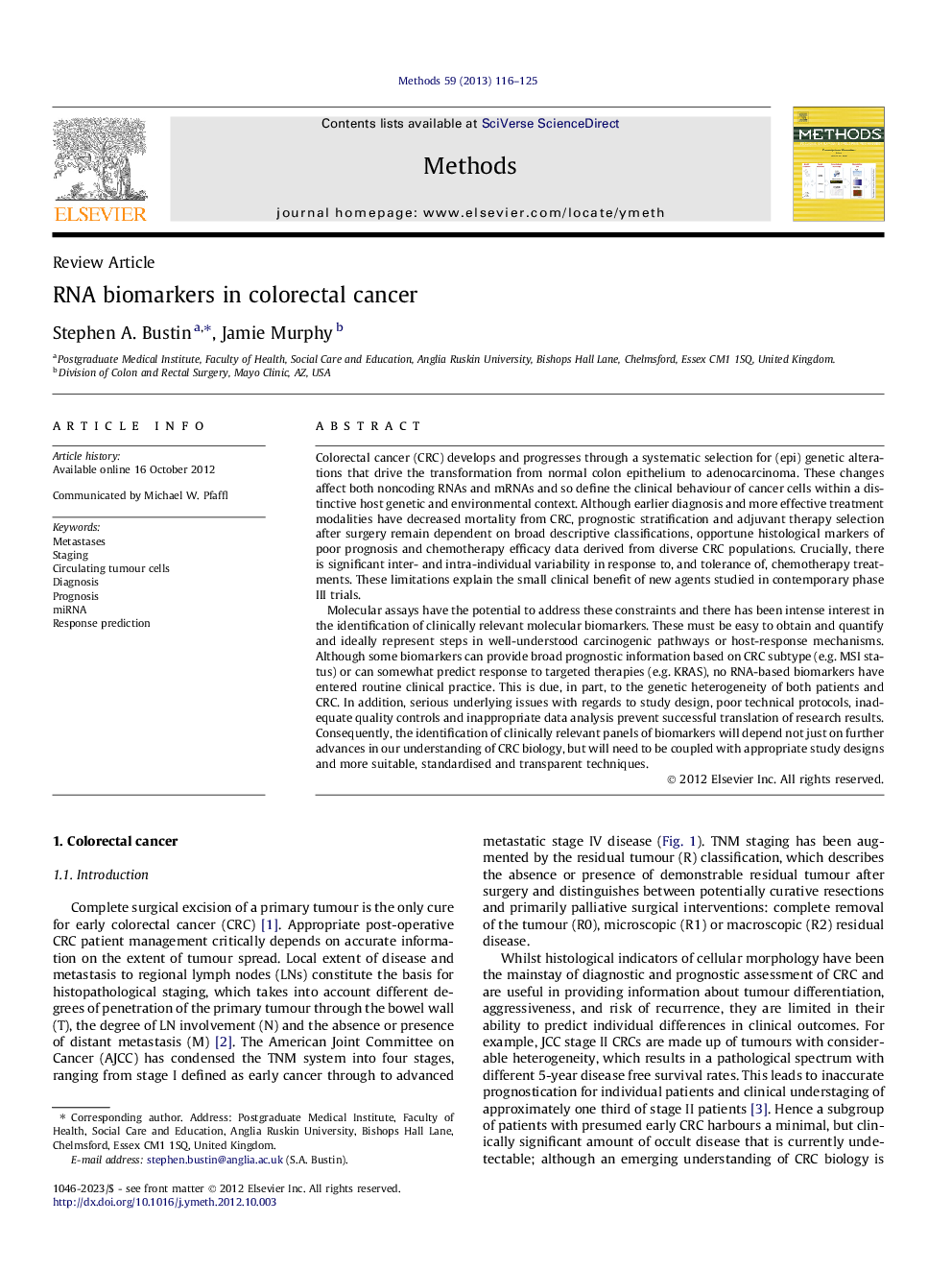| Article ID | Journal | Published Year | Pages | File Type |
|---|---|---|---|---|
| 10825918 | Methods | 2013 | 10 Pages |
Abstract
Molecular assays have the potential to address these constraints and there has been intense interest in the identification of clinically relevant molecular biomarkers. These must be easy to obtain and quantify and ideally represent steps in well-understood carcinogenic pathways or host-response mechanisms. Although some biomarkers can provide broad prognostic information based on CRC subtype (e.g. MSI status) or can somewhat predict response to targeted therapies (e.g. KRAS), no RNA-based biomarkers have entered routine clinical practice. This is due, in part, to the genetic heterogeneity of both patients and CRC. In addition, serious underlying issues with regards to study design, poor technical protocols, inadequate quality controls and inappropriate data analysis prevent successful translation of research results. Consequently, the identification of clinically relevant panels of biomarkers will depend not just on further advances in our understanding of CRC biology, but will need to be coupled with appropriate study designs and more suitable, standardised and transparent techniques.
Related Topics
Life Sciences
Biochemistry, Genetics and Molecular Biology
Biochemistry
Authors
Stephen A. Bustin, Jamie Murphy,
